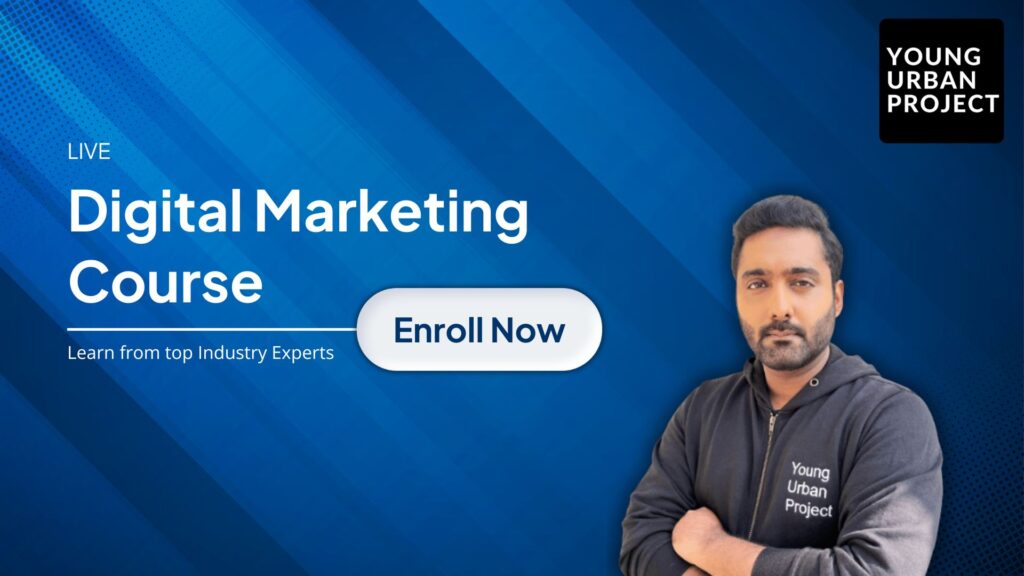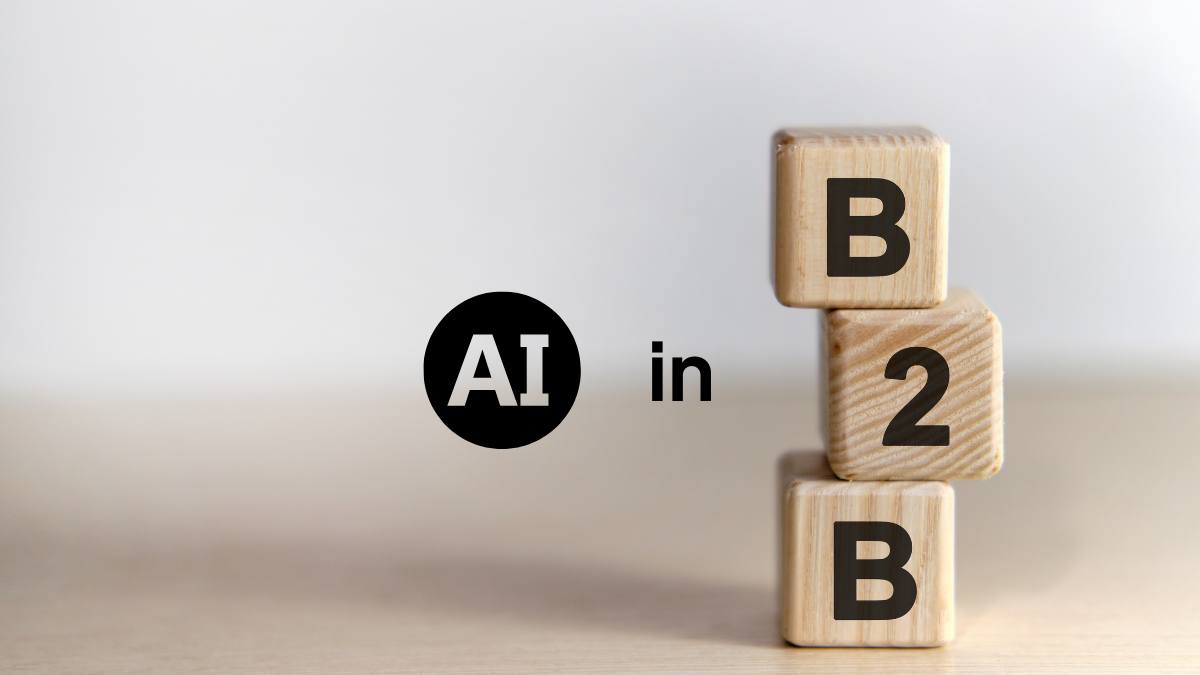Let’s face it: B2B marketing has always been a bit of a beast.
You’re dealing with longer sales cycles, more stakeholders in the buying process, niche target audiences, and a constant battle to prove ROI. Unlike B2C, where campaigns can be emotional and impulsive, B2B marketing is all about logic, timing, and precision. And that’s exactly why AI in B2B marketing is such a game-changer.
We’re not talking about robots taking over your job or replacing marketers with machines. We’re talking about smarter workflows, deeper customer insights, and hyper-personalized experiences that drive better decisions and, ultimately, more revenue. AI is no longer just a buzzword thrown around in boardrooms – it’s a real strategic lever that B2B marketers can pull to outperform competitors.
Table of Contents
What is AI in B2B Marketing?
AI in B2B marketing refers to the use of machine learning, natural language processing, and other forms of artificial intelligence to make marketing efforts smarter and more efficient.
But let’s break it down further.
Imagine having a digital assistant that can:
- Predict which leads are most likely to convert
- Automatically write and optimize your content
- Analyze massive data sets in minutes instead of weeks
- Personalize communication for every buyer persona
That’s the kind of superpower AI brings to B2B.
B2B vs. B2C: Where AI Really Differs
While AI is shaking up both B2C and B2B worlds, the applications in B2B tend to be more data-driven and strategic.
- Longer Decision Cycles: B2B buyers need nurturing. AI helps maintain engagement over time.
- Smaller Audience Pools: AI helps with micro-segmentation and targeting by intent.
- Complex Buyer Journeys: AI maps and optimizes every touchpoint, from awareness to deal closure.
So, the goal of AI in B2B marketing isn’t just automation – it’s augmentation.
Top Use Cases of AI in B2B Marketing
1. AI for Smarter Customer Segmentation & Targeting
Gone are the days of manually sorting spreadsheets to create segments.
AI can cluster customers based on behavior, firmographics, technographics, and even intent signals.Tools like HubSpot and Keyplay use predictive algorithms to create dynamic, self-updating segments.This means your targeting is always relevant and your campaigns reach the right people at the right time.
Add predictive modeling to the mix, and you can:
- Prioritize leads based on likelihood to convert
- Allocate sales resources more effectively
- Improve CPL (Cost Per Lead) and CAC (Customer Acquisition Cost)
2. AI-Powered Predictive Analytics for Lead Scoring
Lead scoring used to be a guessing game. But AI removes the guesswork.
By analyzing data like:
- Email engagement
- Website behavior
- Social signals
- CRM activity
AI can assign scores that actually reflect buyer readiness. Platforms like 6sense or Salesforce Einstein can even notify sales teams the moment a lead hits a key threshold. The result? Better alignment between sales and marketing, and no more cold outreach that feels… cold.
3. Personalization at Scale with AI
Personalization is no longer optional in B2B. In fact, 73% of B2B buyers expect personalized experiences (Source). But doing this manually? Impossible.
AI helps you scale it with ease:
- Dynamic Content: Websites that adapt based on user data (location, industry, past behavior).
- Email Personalization: Tools like Jasper and HubSpot AI can generate hyper-specific email content based on recipient profiles.
- Product/Content Recommendations: Suggest case studies, blogs, or demos based on individual user behavior.
4. AI in Content Creation and Repurposing
Content creation is a constant challenge for B2B marketers. AI tools like ChatGPT, Jasper, and Grammarly can speed up this process without sacrificing quality.
Use AI to:
- Draft blog posts, email campaigns, and social content
- Repurpose webinars into bite-sized social clips (using Synthesia or HeyGen)
- Turn reports into infographics and LinkedIn carousels
This not only saves time but also helps you distribute content across platforms more effectively.
5. Conversational AI for Lead Generation & Nurturing
Conversational marketing is no longer just for B2C – it’s becoming a powerful strategy in B2B lead generation too.
AI-powered chatbots like Drift can:
- Qualify leads in real-time
- Schedule sales meetings
- Send personalized follow-ups via email or messaging apps
This is perfect for capturing high-intent traffic on your website and immediately turning it into pipeline.
6. Enhancing ROI from Events and Webinars with AI
B2B brands often pour resources into events and webinars – but post-event engagement tends to fall flat.
AI helps in:
- Identifying hot leads based on engagement
- Auto-generating follow-up sequences
- Summarizing sessions into shareable content (e.g., FullStory’s AI summaries)
The result? You keep the momentum going and close more deals post-event.
10 Must-Have AI Tools for B2B Marketing in 2025
1. ChatGPT
Perfect for kickstarting content ideas when you’re stuck, writing cold email drafts, or summarizing customer insights. It’s like having a copywriter, strategist, and research assistant all rolled into one, available 24/7 to supercharge your AI in B2B marketing workflows.
2. Grammarly
Beyond just fixing typos, Grammarly helps you sound sharp and professional. It adjusts tone, clarity, and even formality in real time, making sure your emails, case studies, and landing pages resonate with B2B buyers and don’t get ignored.
3. Surfer SEO
This is your go-to for SEO that actually works. Surfer analyzes top-performing pages, compares them to yours, and gives you data-backed suggestions to rank better, blending keyword research, content structure, and on-page optimization in one AI-enhanced dashboard.
4. AdCreative.ai
Instead of guessing which ad visuals will perform, this tool generates tested, data-driven creatives at scale. It’s ideal for B2B marketers running multiple campaigns across channels who need eye-catching designs that convert, fast and without relying on a full design team.
5. Synthesia
Video creation used to take weeks. Now you can produce human-like explainer videos, demos, or even internal updates in minutes. With customizable avatars and voiceovers, Synthesia helps B2B brands build trust without expensive video shoots or editing.

Enroll Now: AI Marketing course
6. HeyGen
Want to wow prospects? HeyGen lets you send personalized AI-generated video messages that look and sound like you. It’s a powerful way to add human touch to B2B outreach, especially during cold prospecting or post-demo follow-ups.
7. HubSpot AI
HubSpot’s AI features bring everything under one roof, from smart email suggestions to predictive lead scoring and workflow automation. It’s built for scale and is ideal for B2B teams that want unified CRM, email, and social automation with real intelligence.
8. Jasper
Jasper is a writing assistant with deep understanding of B2B tone, industries, and customer pain points. Whether you’re crafting thought-leadership pieces or battlecards for sales, Jasper helps generate high-converting content that doesn’t sound robotic or off-brand.
9. Keyplay
Stop wasting time chasing unqualified leads. Keyplay uses AI to spot and rank high-fit accounts based on company data, buyer signals, and your ICP. It helps B2B teams focus on leads that actually have the potential to convert, not just click.
10. Seamless.AI
Lead sourcing is no longer manual. Seamless.AI finds verified emails, job titles, and contact details, all powered by AI and enriched in real time. It’s perfect for B2B outbound teams that want to build high-quality prospect lists without the grunt work.
Also Read: Top Lead Generation Software
How to Actually Use AI in B2B Marketing
1. Get a 360° Customer View
To truly understand your B2B buyers, you need more than just email opens or form fills. By connecting your CRM, marketing automation platforms, and third-party data sources, AI helps you build a complete 360-degree customer profile. This isn’t just about unified data, it’s the foundation of effective 360-degree marketing. AI analyzes intent signals, engagement history, and behavior patterns to surface real insights. The result? Sales and marketing teams can align efforts, personalize messaging, and move faster on the leads that matter most.
2. Segment with Precision
Go beyond firmographic segmentation. AI can automatically group leads by behavior, content engagement, buying signals, and more. You get sharper segments, meaning you’re not sending the same message to everyone; you’re speaking to their needs at the right moment.
3. Automate Content Production
Create a detailed content calendar and let AI assist in writing blogs, converting webinars into summaries, or turning reports into snackable social posts. You’ll keep all your channels fresh without stretching your team thin or compromising on quality.
4. Personalize the Buyer Journey
Use AI to dynamically change headlines, CTAs, or even full sections of a landing page based on who’s visiting. From personalized email sequences to tailored sales decks, your prospects feel like you’re talking just to them, at every touchpoint.
5. Score Leads Predictively
Instead of manually rating leads, AI tools like 6sense analyze behavior patterns and account-level intent to tell you who’s ready to buy. It prioritizes outreach based on real buying signals, helping sales teams act before competitors even notice the lead.
6. Scale Conversations
Deploy AI chatbots and automated schedulers that engage with visitors 24/7. These tools qualify leads, book demos, and answer FAQs instantly, so no opportunity falls through the cracks, even outside business hours. It’s like having an extra team member.
7. Maximize Events
After hosting a webinar or attending an expo, AI can identify hot prospects based on their participation and follow-up activity. It also auto-generates post-event emails, summary blogs, and short-form content, turning every event into a long-term asset.
Conclusion
To sum it up: AI in B2B marketing isn’t just the future. It’s now.
Companies that adopt it early are already seeing higher ROI, shorter sales cycles, and better customer engagement. But don’t overwhelm yourself. Start small, test aggressively, and build your AI stack one layer at a time.
Want to get hands-on with these tools? Check out Young Urban Project’s AI Marketing course – we help marketers implement AI practically and profitably.
FAQs: AI in B2B Marketing
1. Is AI only for large B2B companies, or can small businesses use it too?
Not at all. Many affordable AI tools like Jasper and Seamless.AI make it easy for startups and small businesses to leverage AI for content creation, lead generation, and automation – without massive budgets or large teams.
2. How is AI used for B2B lead generation?
AI helps identify high-intent leads by analyzing user behavior, scoring them based on intent signals, and automating outreach with personalized content. This makes lead generation faster, smarter, and more efficient for B2B marketers.
3. Can AI completely replace human marketers in B2B?
No. AI is great at automating repetitive tasks, analyzing data, and scaling efforts, but human marketers bring essential creativity, emotional intelligence, and strategic thinking that machines can’t replicate – especially in complex B2B sales cycles.
4. What’s the biggest challenge in using AI for B2B marketing?
Poor or disconnected data. AI depends on good-quality, integrated data to work effectively. If your data is messy or siloed across tools, it leads to weak insights and poor decision-making.
5. What’s the best way to start using AI in B2B marketing today?
Start small. Choose one area – like lead scoring or email personalization – test an AI tool, track performance, and expand from there. Gradually build confidence and expertise as you scale your AI use.
6. Are AI-generated B2B marketing materials SEO-friendly?
Yes, but they work best when paired with dedicated SEO tools like Surfer or Frase. These help ensure your AI-generated content is optimized properly for search engines while staying relevant for your audience.

